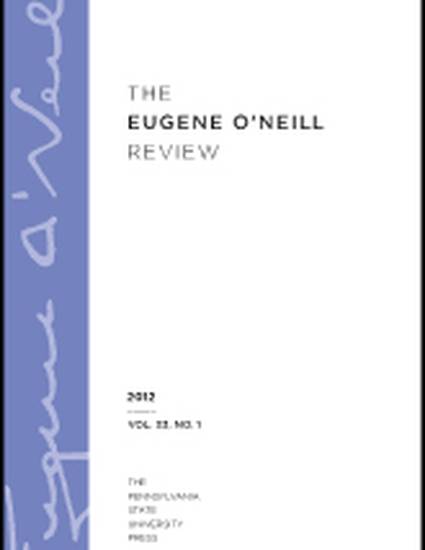
Article
Dionysus in Diaspora: O'Neill's Tragedy of Muted Revelries
The Eugene O'Neill Review
(2000)
Abstract
The use of tragedy in O’Neill’s plays, most particularly in The Iceman Cometh, can be understood as a form of the Dionysian rite. As I have discussed elsewhere,1 the orgy of celebration of the god—the tragic immolation of self in the rite of the insecure god, who demands your identity to affirm his—is central to O’Neill’s tragic sensibility. This is what happens to Pentheus in Euripides’ Bacchae. He surrenders his kingship, his sovereignty, his masculinity, and finally his life, to spy on the sacred ritual and root out the god. Instead, it is he who is rooted out, and his parents, exemplars of the whole city, are left to comprehend and live with the horror. What happens to Nina in Strange Interlude and to Lavinia in Mourning Becomes Electra resembles the aftermath of this horror. These heroines take on the identity of the god by committing themselves like devotees to the constant living out of the loss which is reborn at each turn of the screw. They enact for the god the continual repetition of the sacrifice. It is the Dionysian Living Death. In The Iceman Cometh, Hickey assumes the identity of the God, the savior, only to be brought down, like Pentheus, by his own delusions. But unlike Pentheus, he is left alive to plead his case in futility. “An embittered life is condemned to continue the unspeakably endless search for value in the wasteland, a kind of hell on earth.... We live not with the love but only with the condemnation of the god, to be compelled to find tragedy where there is only pathos.”
Keywords
- Dionysian rite,
- Eugene O'Neill
Disciplines
Publication Date
2000
Citation Information
Daniel Larner. "Dionysus in Diaspora: O'Neill's Tragedy of Muted Revelries" The Eugene O'Neill Review Vol. 24 Iss. 1-2 (2000) Available at: http://works.bepress.com/daniel_larner/16/
